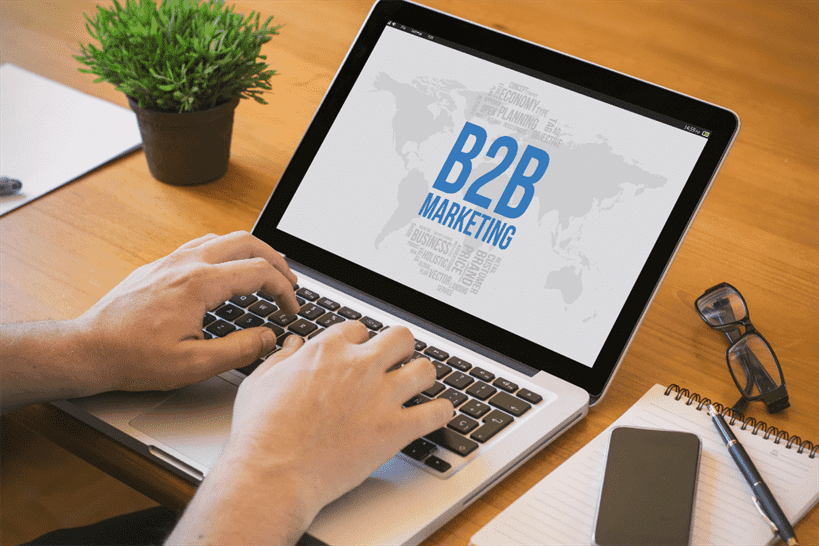In the fast-paced and competitive realm of B2B marketing, a well-crafted campaign is the key to success. It’s not just about generating leads; it’s about guiding those leads through a strategic journey that culminates in conversions. In this article, we’ll delve into the intricacies of Targeted B2B Campaigns, exploring each aspect from crafting buyer personas to implementing retargeting strategies.
Crafting a Laser-Focused B2B Buyer Persona

The foundation of any successful B2B campaign lies in understanding your audience. Crafting a detailed buyer persona is akin to creating a roadmap for your marketing endeavours. It involves more than just demographic information—it delves into your ideal customer’s pain points, challenges, and goals.
- Buyer Persona Development: Begin by conducting thorough research. Utilize analytics and measurement tools to gather data on your existing customers. This, coupled with interviews and surveys, will provide a holistic view of your target audience.
- Competitive Analysis: A robust buyer persona should also consider the competitive landscape. Analyze what sets your agency services apart. Identifying the unique selling propositions allows for better positioning in the market.
Tailoring Content for Specific B2B Segments

With buyer personas in hand, the next step is tailoring content that resonates with specific B2B segments. Content marketing is not a one-size-fits-all strategy; it’s about creating valuable, relevant, and consistent content that addresses the specific needs of different segments.
- Content Marketing Strategies: Develop a content calendar that aligns with the buyer’s journey. From awareness to consideration and decision, each stage requires tailored content. Leverage marketing automation to ensure the timely delivery of content that nurtures leads through the funnel.
- Social Media Marketing: In the digital age, social media is a powerful tool for B2B marketing. Identify the platforms where your target audience is most active and tailor your content accordingly. Social media marketing is not just about promotion but engagement and building meaningful connections.
Personalization Strategies for B2B Engagement

Personalization is the cornerstone of effective B2B engagement. Buyers expect a customized experience that speaks directly to their challenges and aspirations. Marketing automation plays a pivotal role in delivering personalized content at scale.
- Marketing Automation: Implement marketing automation tools to streamline processes and personalize interactions. From personalized emails to dynamic website content, automation ensures your messaging is always relevant.
- Sales Enablement: Align your marketing efforts with sales enablement. Provide sales teams with the tools and content to engage effectively with leads. A cohesive approach between marketing and sales ensures a smoother transition from lead generation to conversion.
Optimizing Landing Pages for Conversion Success

Your landing page is the gateway to conversions. Optimizing it for maximum impact involves compelling design, persuasive copy, and a seamless user experience.
- Branding and Positioning: Consistency in branding is crucial. Your landing page should reflect the same brand identity portrayed across all channels. Clear positioning statements help visitors understand the value your B2B marketing agency services bring.
- Analytics and Measurement: Deploy analytics tools to track the performance of your landing pages. Metrics such as bounce rate, conversion rate, and click-through rate provide insights into user behaviour. Use A/B testing to refine elements for optimal results.
Leveraging Email Marketing for Targeted Campaigns

Email marketing remains a stalwart in B2B campaigns. However, success lies in more than just sending periodic newsletters. It’s about crafting targeted campaigns that resonate with the recipient.
- Segmentation and Personalization: Segment your email lists based on buyer personas and engagement history. Personalize email content to address each segment’s specific pain points and interests. A targeted approach increases the likelihood of engagement and conversions.
- Marketing Technology: Integrate digital marketing technology to enhance your email campaigns. Marketing automation tools can automate drip campaigns, ensuring a consistent and personalized flow of communication.
Utilizing Account-Based Marketing in B2B Campaigns
Account-Based Marketing (ABM) is a strategic approach targeting high-value accounts with personalized campaigns. It’s a tailored strategy that aligns sales and marketing efforts to win over critical accounts.
- Strategic Targeting: Identify key accounts that align with your ideal buyer personas. ABM involves a deep understanding of each account’s specific needs and challenges, allowing for highly personalized campaigns.
- Integration with Sales: ABM is most effective when sales and marketing teams collaborate closely. Shared goals and metrics ensure synchronization of efforts, leading to a more cohesive and impactful campaign.
Maximizing ROI with Data-Driven Campaigns

In the realm of B2B marketing, data is king. Every decision, from campaign marketing strategy to content creation, should be informed by data-driven insights.
- Data Analytics: Invest in robust analytics tools to gather and analyze data. From website analytics to social media metrics, a comprehensive understanding of data allows for informed decision-making.
- Continuous Optimization: B2B marketing is an iterative process. Regularly review campaign performance and make data-driven optimizations. A/B testing is a valuable tool for refining elements and maximizing ROI.
A/B Testing and Optimization for B2B Conversions
A/B testing is the scientific method of marketing. It allows you to experiment with different elements of your campaigns and identify what resonates best with your audience.
- Experimentation: Test different variations of your campaigns, from email subject lines to landing page layouts. A/B testing provides concrete evidence of what works and what doesn’t.
- Iterative Improvement: Use the insights gained from A/B testing to refine and improve your campaigns continuously. This iterative approach ensures that your B2B marketing efforts constantly evolve for better results.
Influencer Marketing in B2B: A Targeted Approach

While often associated with B2C marketing, influencer marketing has found its place in the B2B landscape. However, the approach is more strategic, focusing on industry experts and thought leaders.
- Industry Thought Leaders: Identify influencers within your industry or niche. These thought leaders can lend credibility to your brand and provide valuable endorsements. Their audience is likely to be aligned with your target market.
- Authenticity and Relevance: In B2B influencer marketing, authenticity is critical. Partner with influencers whose values and expertise align with your brand. The content they create should seamlessly integrate with your overall messaging.
Retargeting Strategies for B2B Conversion Optimization
Only some leads convert on the first interaction. Retargeting is a powerful strategy to re-engage leads who have shown interest but have yet to take the final step.
- Strategic Placement: Place retargeting ads strategically. Consider the specific actions leads took on your website and tailor retargeting messages accordingly. A well-timed and relevant retargeting ad can reignite interest.
- Personalized Offers: Incorporate personalized offers in your retargeting efforts. Whether it’s a discount, exclusive content, or a personalized demo, provide incentives that encourage leads to convert.
In conclusion, a successful B2B marketing campaign is a multifaceted journey, from understanding your audience through detailed buyer personas to leveraging advanced strategies like account-based marketing and influencer collaborations. It involves seamlessly integrating marketing technology, analytics, and a commitment to continuous improvement through A/B testing. By embracing personalization and strategically utilizing email marketing and retargeting, B2B marketers can precisely guide through the funnel, ultimately maximizing ROI and achieving conversion success.
